
General Whiting to General Lamb ~ "Lamb, my boy, I have come to share your fate. You and your garrison are to be sacrificed."
It's a perfect setting for ghosts and haunts. The decisive second battle of Fort Fisher came in the first month of the last year of the American Civil War. This battle was unique. Naval bombardments and a successful federal landing on January the 15th, 1865 against this Gibraltar of the South, saw savage fighting on the beach surrounding the place and, in particular, a close-in ferocious six hour struggle inside it.
The fort guarded the South's last viable and vital port town of Wilmington. And if one wishes to read the definitive book on the battle, it's called Confederate Goliath by Rod Gragg. Even a condensed read of the Second Battle of Fort Fisher on Wikipedia should give one an idea of why this place appears to be so very haunted.
Below are two wiki commons photos with the first showing the moment Union marines and infantry broke through the beach obstructions to attack the fort directly, and the second is an 1865 photo taken not long after the desperate battle that shows the inside of the fort and some of its bombproofs and debris.
It's a perfect setting for ghosts and haunts. The decisive second battle of Fort Fisher came in the first month of the last year of the American Civil War. This battle was unique. Naval bombardments and a successful federal landing on January the 15th, 1865 against this Gibraltar of the South, saw savage fighting on the beach surrounding the place and, in particular, a close-in ferocious six hour struggle inside it.
The fort guarded the South's last viable and vital port town of Wilmington. And if one wishes to read the definitive book on the battle, it's called Confederate Goliath by Rod Gragg. Even a condensed read of the Second Battle of Fort Fisher on Wikipedia should give one an idea of why this place appears to be so very haunted.
Below are two wiki commons photos with the first showing the moment Union marines and infantry broke through the beach obstructions to attack the fort directly, and the second is an 1865 photo taken not long after the desperate battle that shows the inside of the fort and some of its bombproofs and debris.
ORBS AT AN OLD COLONIAL TOWN and CIVIL WAR FORT
Let's start off this article with a revelation told to me by relative who is a Civil War reenactor. It kind of sets the mood for the coming ghost tales about Fisher. A couple of years ago his regiment was camping out at the history site of colonial Brunswick Town/ Fort Anderson which is on the other side of the Cape Fear River from the peninsula Fort Fisher is on. There are two ways I know of to reach Fisher; one is by going straight down Highway 421 from Wilmington and the other is by taking the ferry that is not too far past Ft. Anderson on Highway 133 and cross over the wide river to the peninsula that way.
One day as the all the reenactor guys were going about their business, one fellow started taking digitals all around. It wasn't long before he called several of them over to see something unusual about the photos. What was rather remarkable about some of the pics was what appeared to be orbs of different sizes hovering around one of the reenactors - and only that particular individual, at that. Stirred, but let's say, not yet stunned, the photographer asked them all to go back to doing their activities but this time in different places other than where they had just been.
After maybe a dozen or so more digital photos were taken is where the true amazement began among the entire reenactor regiment. The orbs were still all around the solitary man and no one else, or anything else for that matter. Brunswick Town is very old, started in 1726, and later on was used as one of several forts guarding the upper Cape Fear River approaches to Wilmington during the Civil War. The historic site also has some mighty old burial grounds amongst all the many building and home foundations. One can make what they will of this orb incident, but whatever the reason for them to appear around this reenactor and nothing else is intriguing.
Now, on to our ferry ride over to see Fort Fisher.
Let's start off this article with a revelation told to me by relative who is a Civil War reenactor. It kind of sets the mood for the coming ghost tales about Fisher. A couple of years ago his regiment was camping out at the history site of colonial Brunswick Town/ Fort Anderson which is on the other side of the Cape Fear River from the peninsula Fort Fisher is on. There are two ways I know of to reach Fisher; one is by going straight down Highway 421 from Wilmington and the other is by taking the ferry that is not too far past Ft. Anderson on Highway 133 and cross over the wide river to the peninsula that way.
One day as the all the reenactor guys were going about their business, one fellow started taking digitals all around. It wasn't long before he called several of them over to see something unusual about the photos. What was rather remarkable about some of the pics was what appeared to be orbs of different sizes hovering around one of the reenactors - and only that particular individual, at that. Stirred, but let's say, not yet stunned, the photographer asked them all to go back to doing their activities but this time in different places other than where they had just been.
After maybe a dozen or so more digital photos were taken is where the true amazement began among the entire reenactor regiment. The orbs were still all around the solitary man and no one else, or anything else for that matter. Brunswick Town is very old, started in 1726, and later on was used as one of several forts guarding the upper Cape Fear River approaches to Wilmington during the Civil War. The historic site also has some mighty old burial grounds amongst all the many building and home foundations. One can make what they will of this orb incident, but whatever the reason for them to appear around this reenactor and nothing else is intriguing.
Now, on to our ferry ride over to see Fort Fisher.
It wasn't too long after the end of the war, that visitors to the former Confederate stronghold started to notice unusual, otherworldly goings-on. The first people to experience these things were Rebel veterans. Some arch skeptics might say these men were hallucinating from PTSD or something. I offer an alternative take, however. Maybe these spirit remnants choose to reveal themselves first to the comrades they had fought and suffered beside. These apparitions appeared to still be fighting the desperate battle to the startled veterans. As time passed and went on, one butternut-clad soldier began to stand out. He appeared to be a sentry, staring out to sea, and vanished whenever someone tried to approach him. This stalwart watchman still appears to people.
In addition to this solitary figure, there is a frequently seen specter that does interact with people. This ghost is speculated to be none other than Colonel Lamb himself, a high-ranking rebel officer during the battle. He's also encountered outside the fort's perimeters, walking the beach or trails. He even stands at the door to the museum at times. Can you imagine seeing a sight like that. Why, it'd be the highlight of any visit one might think!
The commander of the fort in Jan. 1865, General Whiting, was also reported in earlier times. He was first seen at a reunion of veterans too. As the day, and spectral figure, faded from their sight, one old soldier pointed out that that was the exact spot were the General had been mortally wounded. He continued to be sighted by the veterans, and any doubters were in no uncertain terms told that men like themselves did not forget what their commander-in-chief looked like; especially in the heat of a battle that killed thousands of men. What is believed to be General Whiting is still spotted on occasion up to this very day. Perhaps, duty still calls for this warrior.
In addition to this solitary figure, there is a frequently seen specter that does interact with people. This ghost is speculated to be none other than Colonel Lamb himself, a high-ranking rebel officer during the battle. He's also encountered outside the fort's perimeters, walking the beach or trails. He even stands at the door to the museum at times. Can you imagine seeing a sight like that. Why, it'd be the highlight of any visit one might think!
The commander of the fort in Jan. 1865, General Whiting, was also reported in earlier times. He was first seen at a reunion of veterans too. As the day, and spectral figure, faded from their sight, one old soldier pointed out that that was the exact spot were the General had been mortally wounded. He continued to be sighted by the veterans, and any doubters were in no uncertain terms told that men like themselves did not forget what their commander-in-chief looked like; especially in the heat of a battle that killed thousands of men. What is believed to be General Whiting is still spotted on occasion up to this very day. Perhaps, duty still calls for this warrior.
THE INSPIRING STORY BUT SAD ENDING OF A FORT FISHER HERMIT
Now here was a haunting of another kind at this national historic landmark. There was a fellow back in the 1950s named Robert Edward Harrell. It seems Old Harrell got tired of his ill-treatment at a retirement center and one day bolted for Fort Fisher. The man became self-sufficient by gardening, beach combing, fishing - those kind of things. Some friendly folks fed him on occasion and he earned a bit of money by sometimes bartering.
During Harrell's sixteen or seventeen years living in a bunker constructed at the site in WW2, a lot of folks grew quite fond of the recluse and the newspapers even wrote positive articles on him. Apparently, a film crew even did an extensive documentary with a lengthy interview. Unfortunately, some local bullies and punks would harass the hermit occasionally, but no one thought he would ever be physically hurt by them, or anyone else.
But come June of 1972, he was found deceased in his bunker home. The circumstances surrounding his death were rather mysterious. First off, the police chief and photographer had to remove some boards at the entrance to the bunker - sort of like finding a murder victim inside a room locked from the inside - but not quite, as the boards supported the opening too. Poor Harrell was found on his back all splayed out with a raincoat bundled around his neck. At any rate, the coroner listed the cause of death as from natural causes. However, about six months later a fruitless autopsy was done after many locals suspected foul play. From not long after his passing and up until today, people still hear a distinctive voice that seems to diminish toward the bunker and then cease.
Now here was a haunting of another kind at this national historic landmark. There was a fellow back in the 1950s named Robert Edward Harrell. It seems Old Harrell got tired of his ill-treatment at a retirement center and one day bolted for Fort Fisher. The man became self-sufficient by gardening, beach combing, fishing - those kind of things. Some friendly folks fed him on occasion and he earned a bit of money by sometimes bartering.
During Harrell's sixteen or seventeen years living in a bunker constructed at the site in WW2, a lot of folks grew quite fond of the recluse and the newspapers even wrote positive articles on him. Apparently, a film crew even did an extensive documentary with a lengthy interview. Unfortunately, some local bullies and punks would harass the hermit occasionally, but no one thought he would ever be physically hurt by them, or anyone else.
But come June of 1972, he was found deceased in his bunker home. The circumstances surrounding his death were rather mysterious. First off, the police chief and photographer had to remove some boards at the entrance to the bunker - sort of like finding a murder victim inside a room locked from the inside - but not quite, as the boards supported the opening too. Poor Harrell was found on his back all splayed out with a raincoat bundled around his neck. At any rate, the coroner listed the cause of death as from natural causes. However, about six months later a fruitless autopsy was done after many locals suspected foul play. From not long after his passing and up until today, people still hear a distinctive voice that seems to diminish toward the bunker and then cease.
THE VISITOR CENTER AND MUSEUM SIGHTS & FRIGHTS
The Visitor's Center has had its share of unusual encounters too. In 2006 a group of tourists were looking at artifacts and reading material. When they reached the glass doors at the rear of the building, they observed a Rebel soldier standing on the other side of one of the doors. They took for granted it was an employee or reenactor and went back to what they were doing for a second. Interested, the folks quickly took another glance at the realistic looking soldier but he had vanished. Believing the man was a person, something was unusual nonetheless, and the group became piqued enough to ask some employees about it. They were told politely but firmly that no workers were dressed like that and there were no reenactors at the site that day.
Yes, the specters seem to have taken notice of the Center. A year or two after the aforementioned incident some thing a bit more eerie happened to the last employee left in the building as he closed up. As the fellow was checking all the doors, frightening events began to take place: firstly, books and brochures began propelling themselves off the racks, literally landing all over the floor of the lobby. This alone would be enough to scare most of us nearly witless. But what occurred next was even worse. The rather weighty donation box then flew across the floor with incredible force. The employee skedaddled quickly after that affair with no wish to see anything else happen. Come the next morning, the area of this seemingly paranormal activity was a total mess.
These are just a couple of the ghostly experiences people have had in and around the Visitor's Center, and for that matter, other areas as well. Many folks report unusual smells; like putrefying flesh; shouts, yells, and agonized moaning; gunshots and cannons booming, and so far as the cannonading goes, sometimes it seems as if it originates from offshore. Many Civil War battle spots report a lot of this kind of activity, but perhaps none are so varied and up close and personal as those at Fort Fisher. Now, after the 3 photos is our lady ghost.
The Visitor's Center has had its share of unusual encounters too. In 2006 a group of tourists were looking at artifacts and reading material. When they reached the glass doors at the rear of the building, they observed a Rebel soldier standing on the other side of one of the doors. They took for granted it was an employee or reenactor and went back to what they were doing for a second. Interested, the folks quickly took another glance at the realistic looking soldier but he had vanished. Believing the man was a person, something was unusual nonetheless, and the group became piqued enough to ask some employees about it. They were told politely but firmly that no workers were dressed like that and there were no reenactors at the site that day.
Yes, the specters seem to have taken notice of the Center. A year or two after the aforementioned incident some thing a bit more eerie happened to the last employee left in the building as he closed up. As the fellow was checking all the doors, frightening events began to take place: firstly, books and brochures began propelling themselves off the racks, literally landing all over the floor of the lobby. This alone would be enough to scare most of us nearly witless. But what occurred next was even worse. The rather weighty donation box then flew across the floor with incredible force. The employee skedaddled quickly after that affair with no wish to see anything else happen. Come the next morning, the area of this seemingly paranormal activity was a total mess.
These are just a couple of the ghostly experiences people have had in and around the Visitor's Center, and for that matter, other areas as well. Many folks report unusual smells; like putrefying flesh; shouts, yells, and agonized moaning; gunshots and cannons booming, and so far as the cannonading goes, sometimes it seems as if it originates from offshore. Many Civil War battle spots report a lot of this kind of activity, but perhaps none are so varied and up close and personal as those at Fort Fisher. Now, after the 3 photos is our lady ghost.
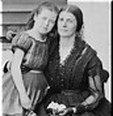
Yes, let' s not forget the lady ghost of Fort Fisher before we end this article. There have been a few reports over the years of a woman specter in 1860s apparel that apparently strides along the beach at the site. Nobody seems to know who she might be but there is the possibility her name is Rose O'Neil Greenhow. Rose was to began the war as a Southern spy in Washington City before being arrested in 1862 by the Pinkerton detective agency. She was then imprisoned for a while with her young daughter until released some time later where she returned to Richmond and its citizens acclaim.
She then become an effective spokesperson for the South in Great Britain and France. In Sept. of 1864 she sailed for home on a British blockade runner with important papers for the government in Richmond. However, at the
entrance to the Cape Fear the vessel was spotted by a Union warship and the chase was on. The weather was bad and the blockade runner managed to elude its pursuer. The captain then decided to wait until night to try again.
By darkness the weather had gotten worse and Rose became determined to reach her home soil then and there. She pleaded with the captain to let her be rowed ashore, which was close by. He eventually relented and two volunteers assisted her into the dinghy and headed for the beach. But a huge wave overturned the boat and Rose was drowned, weighted down by a bag of gold she had around her neck, which she intended to donate to the depleted Southern treasury. Rose's body was found washed ashore the next morning. Since that time people have reported seeing a woman in Civil War era dress wandering along the beach at the spot. So, being not too far distant from each other, could Fort Fisher's lady ghost be none other than that of Rose O'Neil Greenhow herself?
She then become an effective spokesperson for the South in Great Britain and France. In Sept. of 1864 she sailed for home on a British blockade runner with important papers for the government in Richmond. However, at the
entrance to the Cape Fear the vessel was spotted by a Union warship and the chase was on. The weather was bad and the blockade runner managed to elude its pursuer. The captain then decided to wait until night to try again.
By darkness the weather had gotten worse and Rose became determined to reach her home soil then and there. She pleaded with the captain to let her be rowed ashore, which was close by. He eventually relented and two volunteers assisted her into the dinghy and headed for the beach. But a huge wave overturned the boat and Rose was drowned, weighted down by a bag of gold she had around her neck, which she intended to donate to the depleted Southern treasury. Rose's body was found washed ashore the next morning. Since that time people have reported seeing a woman in Civil War era dress wandering along the beach at the spot. So, being not too far distant from each other, could Fort Fisher's lady ghost be none other than that of Rose O'Neil Greenhow herself?
Here is a great link for more information on Fort Fisher: http://www.nchistoricsites.org/fisher/fisher.htm
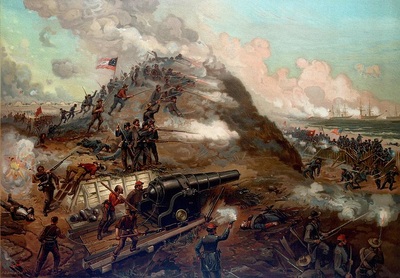


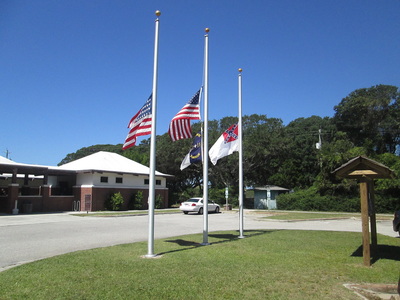
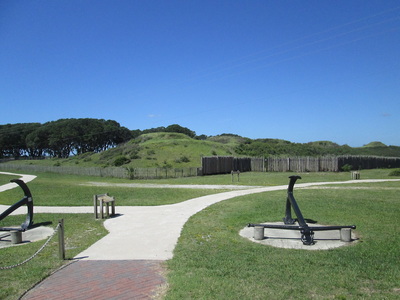
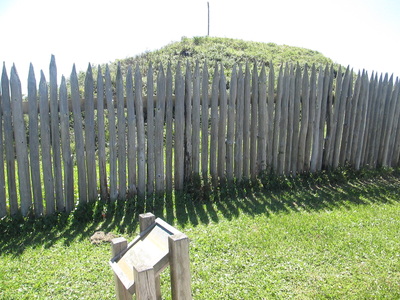
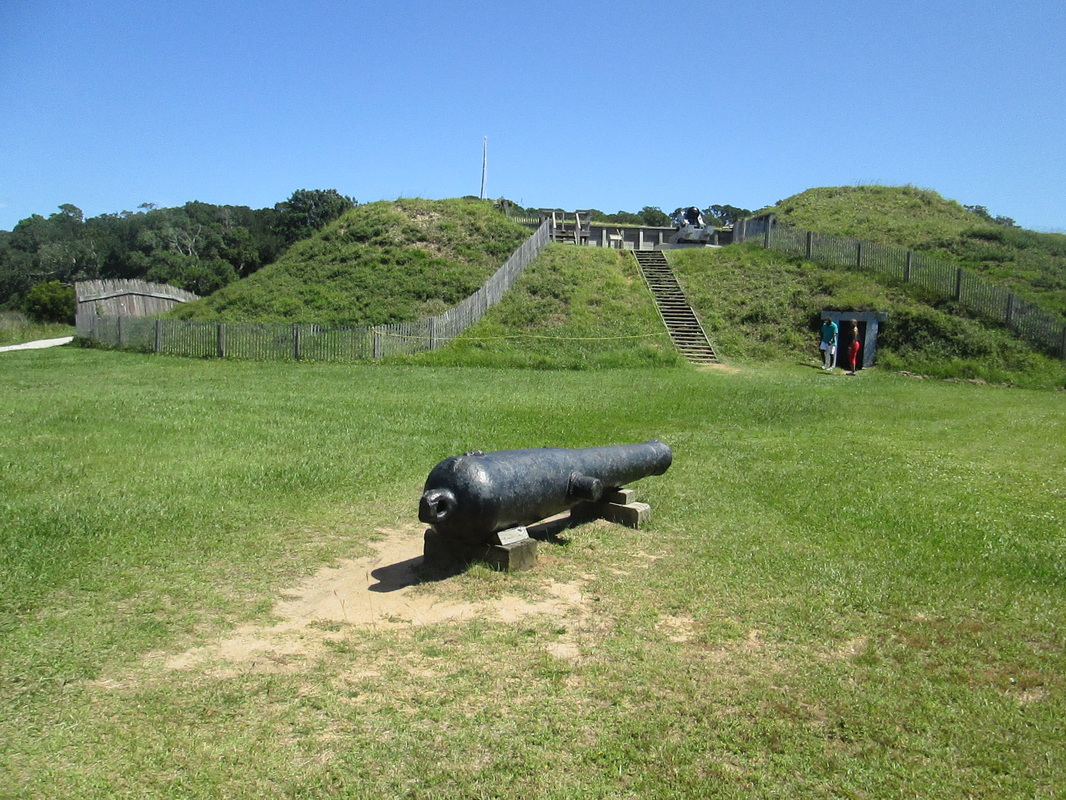
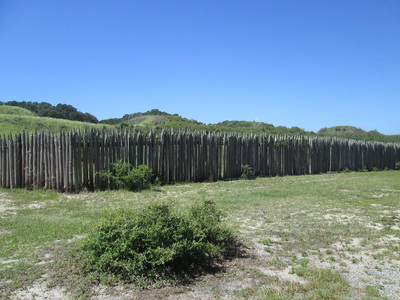

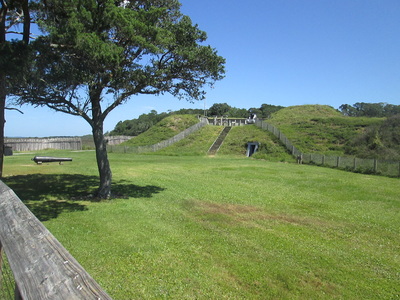
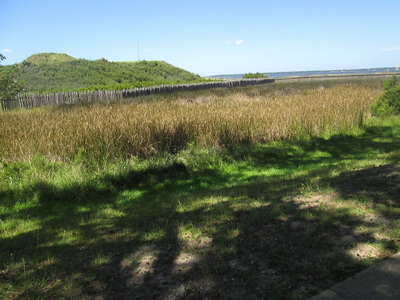
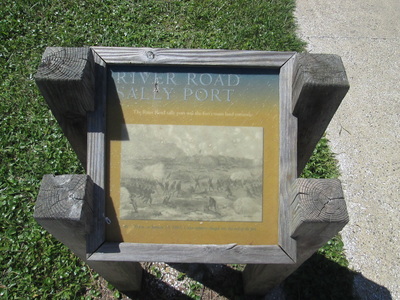
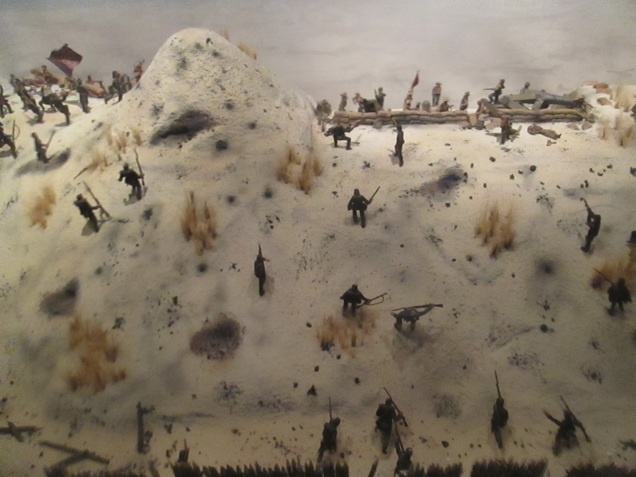
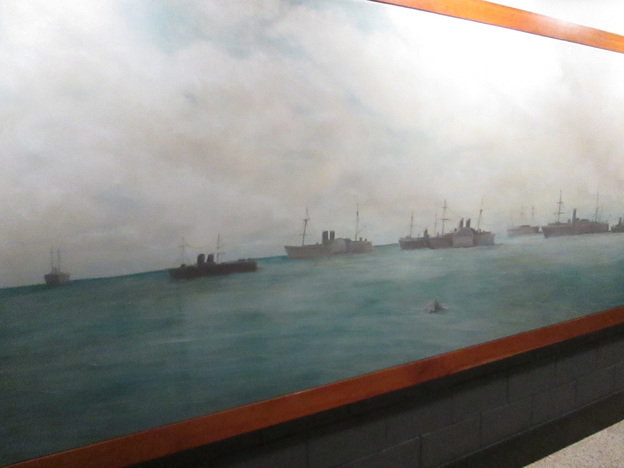
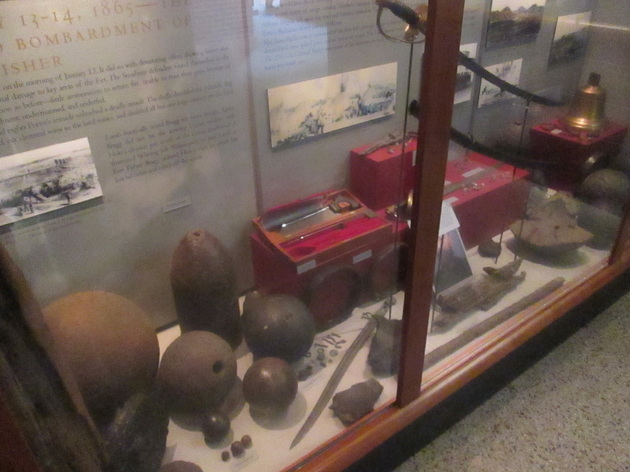
 RSS Feed
RSS Feed
